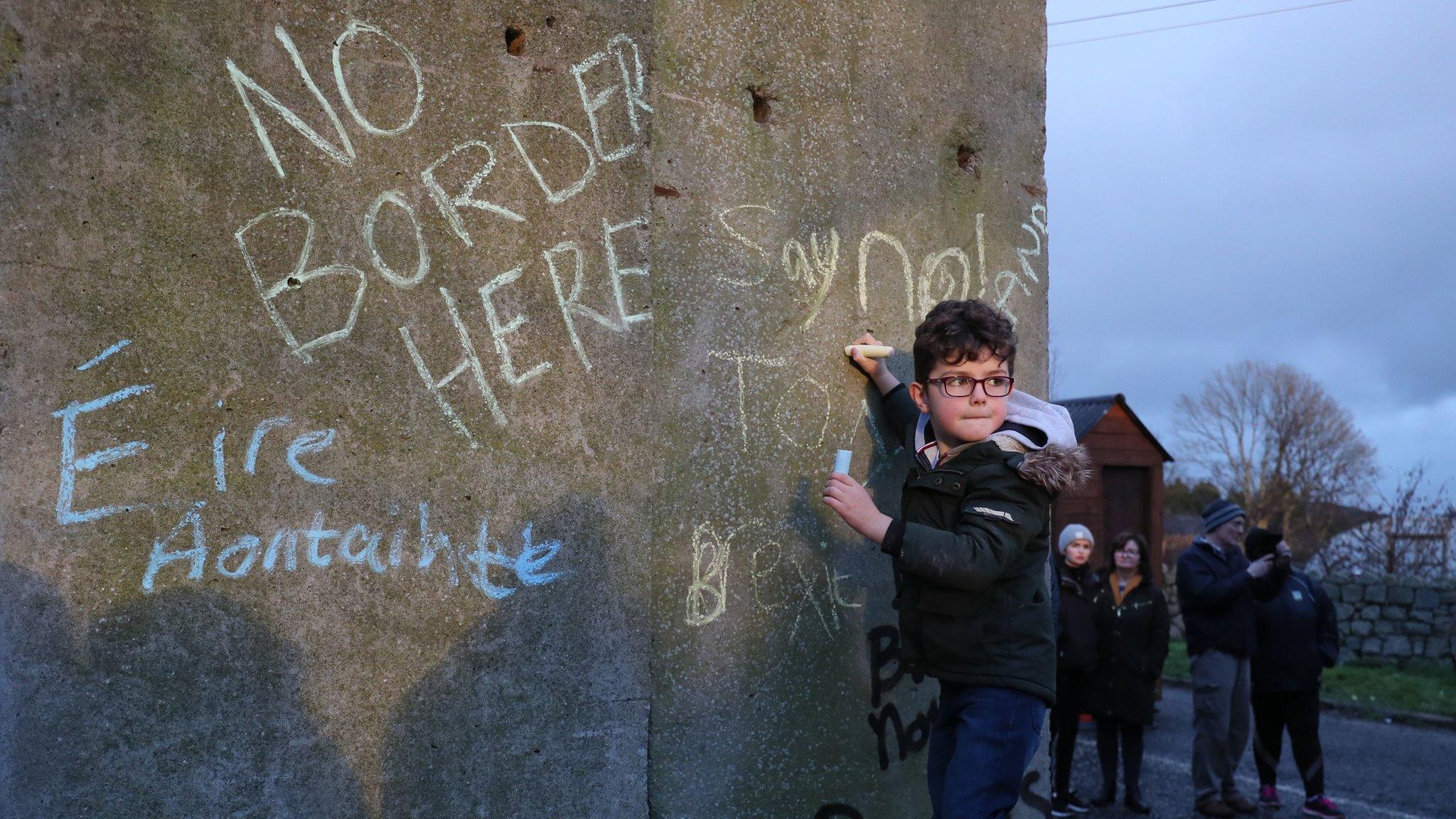Brexit deadlock not game of chicken, says Simon Coveney
- Published
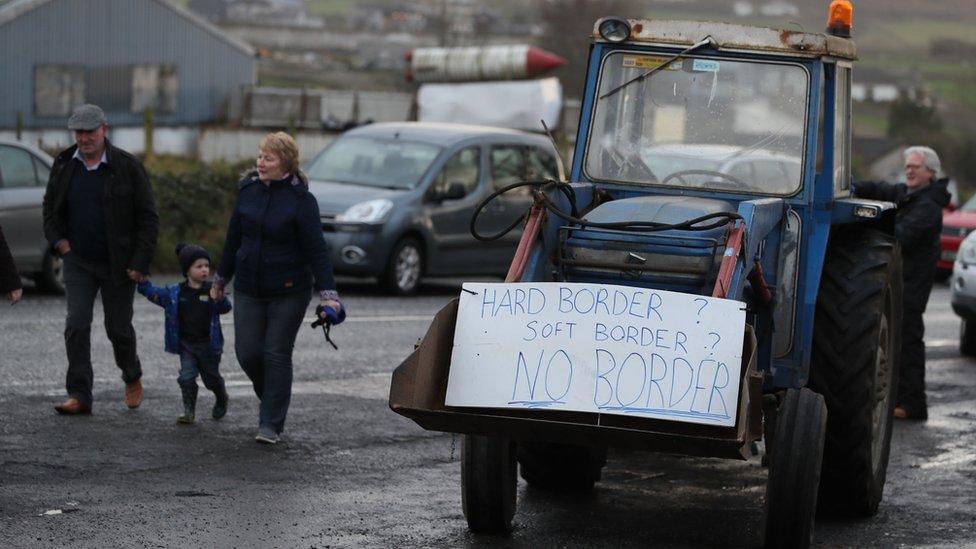
The Irish border has been one of the biggest sticking points during Brexit negotiations
The Brexit deadlock is not a "game of chicken" between the UK and the EU, the Irish deputy prime minister has said.
Simon Coveney said on Sunday that the UK and Irish governments needed to work together to reach a breakthrough.
But he insisted that the backstop - the insurance policy aimed at avoiding a hard Irish border - had to remain a part of the withdrawal agreement.
Theresa May is unlikely to get MPs to approve her Brexit deal unless changes to the backstop are made.
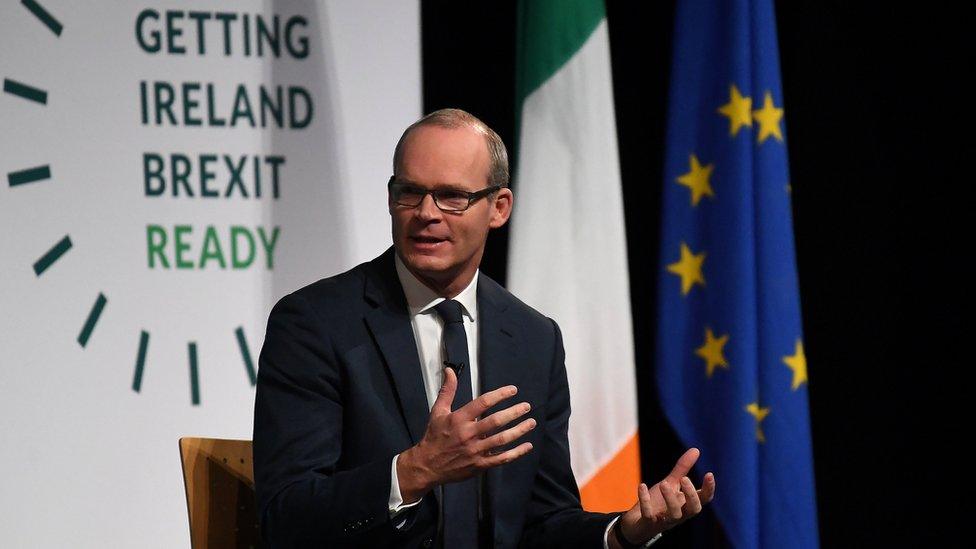
There is "no magic solution" to the Irish border issue, said Simon Coveney
The prime minister is facing opposition from the Democratic Unionist Party (DUP) and Tory Brexiteers, who fear the backstop will not just be a temporary measure if no future trade deal is agreed.
But the Irish government and rest of the EU's member states have insisted the deal is not up for renegotiation.
'Trying to work together'
Speaking on the BBC's The Andrew Marr Show, Mr Coveney said that "no magic solution" had emerged as a "sensible and legally sound" alternative to solve the disputed Irish border issue.
"If there was it would've emerged by now," he added.
Reality Check unpacks the basics of the backstop.
"That is why Ireland will insist on the UK keeping its word, both to Ireland and to the EU and to people in Northern Ireland, in terms of protecting a fragile but hugely valuable peace process."
He said that "people keep talking about games of chicken" but the Irish government and the EU were "trying to work together" with the UK.
"Britain and Ireland are two islands next to each other - we have to work out these things together and stop talking about games of chicken.
"That is the way in which I hope these negotiations will go, rather than the British parliament deciding on something that may command a majority in Westminster but has no chance of getting agreement or ratification in the EU.
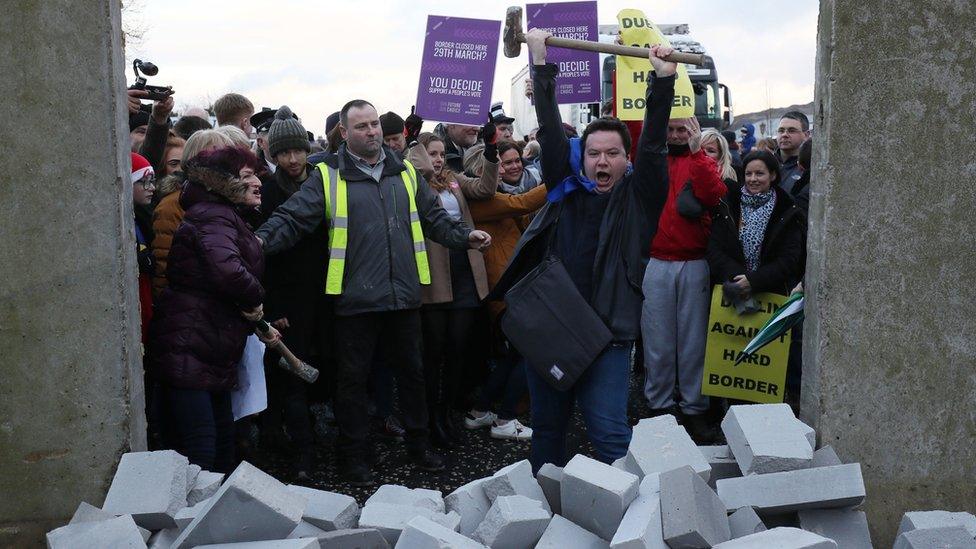
Protesters built and knocked down a wall on the Irish border on Saturday
"The European Parliament will not ratify a withdrawal agreement that doesn't have a backstop in it - it's as simple as that."
Mr Coveney also said that the UK government and the media needed to listen to voices of political parties and business groups in Northern Ireland that have supported the backstop in the draft withdrawal deal.
'Playing on fears'
The DUP's deputy leader Nigel Dodds said on Sunday that the Irish government was producing a "lot of hot air" about threats it claimed that Brexit could pose.
The Taoiseach (Irish prime minister) Leo Varadkar had said on Friday that there was a possibility that troops could return to the Irish border if the UK's withdrawal from the EU was botched.
But Mr Dodds accused him and Mr Coveney of using "incendiary language" and "playing on people's fears".
"It's time for Dublin to ease back on rhetoric and engage constructively with their counterparts," said the MP.
"By talking about troops on the border, Leo Varadkar is being as irresponsible as those building wooden customs huts, dressing actors in trench coats and smashing concrete brick walls on the border."
On Saturday, several hundred people held a protest against Brexit on the Irish border near Newry.
A wall was built across a road and mock Army checkpoints were put in place to symbolise the protesters' opposition to a hard border.
The demonstration was the latest protest by the group Border Communities Against Brexit.
Meanwhile, the former chief constable of the PSNI said on Sunday that the return of a hard border risks a resumption of violence in Northern Ireland.
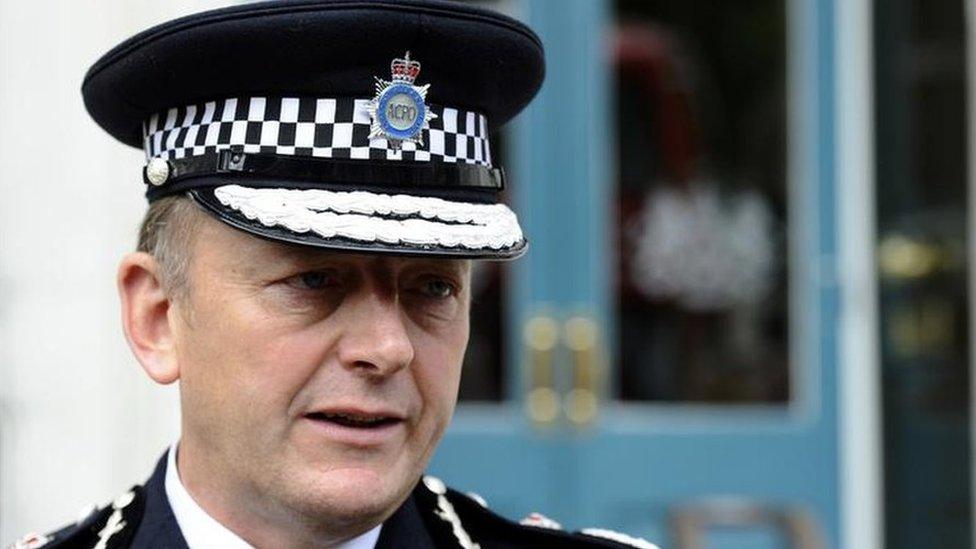
Sir Hugh Orde said a hard border could see a return to violence in Northern Ireland
Speaking on RTÉ's This Week programme, Sir Hugh Orde said border patrols would have "huge consequences in terms of security" and police and customs officers "would become a target".
He added that he could see no way to avoid a hard border if Britain exits the EU without a deal.
"There is no way that I can see to have a soft border unless you have equality in terms of customs and freedom of movement."
He said it would not be possible to put cameras or technology on the border without police or some other form of security to protect them.
"There's nowhere, to my knowledge, in the world where a purely technological solution to the issue of a border has been achieved.
Customs presence
He said a physical barrier would be unavoidable if there was to be a hard Brexit.
"In my judgement, you would have to see some form of physical barrier like exists in many parts of the world where international barriers are a routine part of everyday policing and security.
"You can do a certain amount with technology, but you still need an element of policing to deal with determined criminals and people who take advantage of a privileged status.
"There would have to be some form of customs presence and of course there are huge consequences to that in the context of Northern Ireland and the Republic."
- Published30 July 2019

- Published16 October 2019

- Published13 December 2018
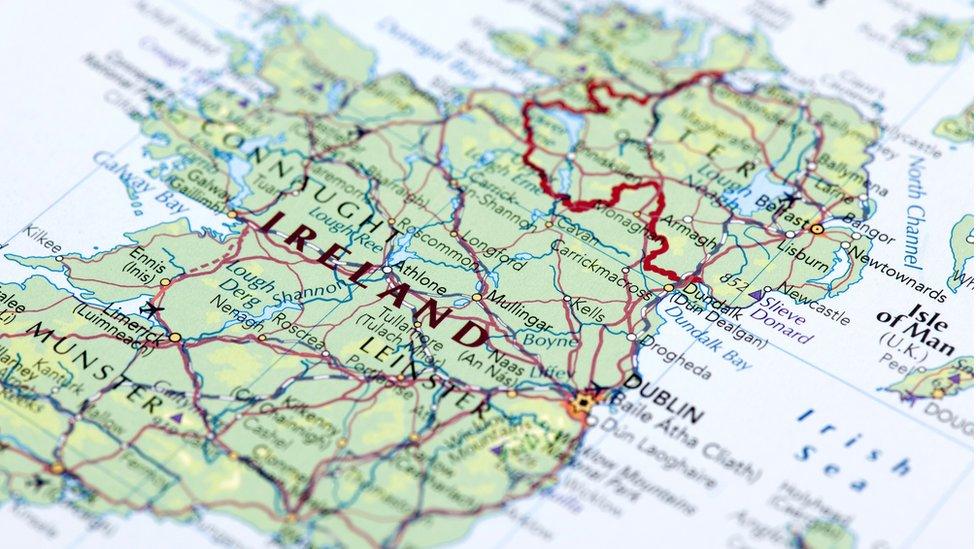
- Published27 January 2019
